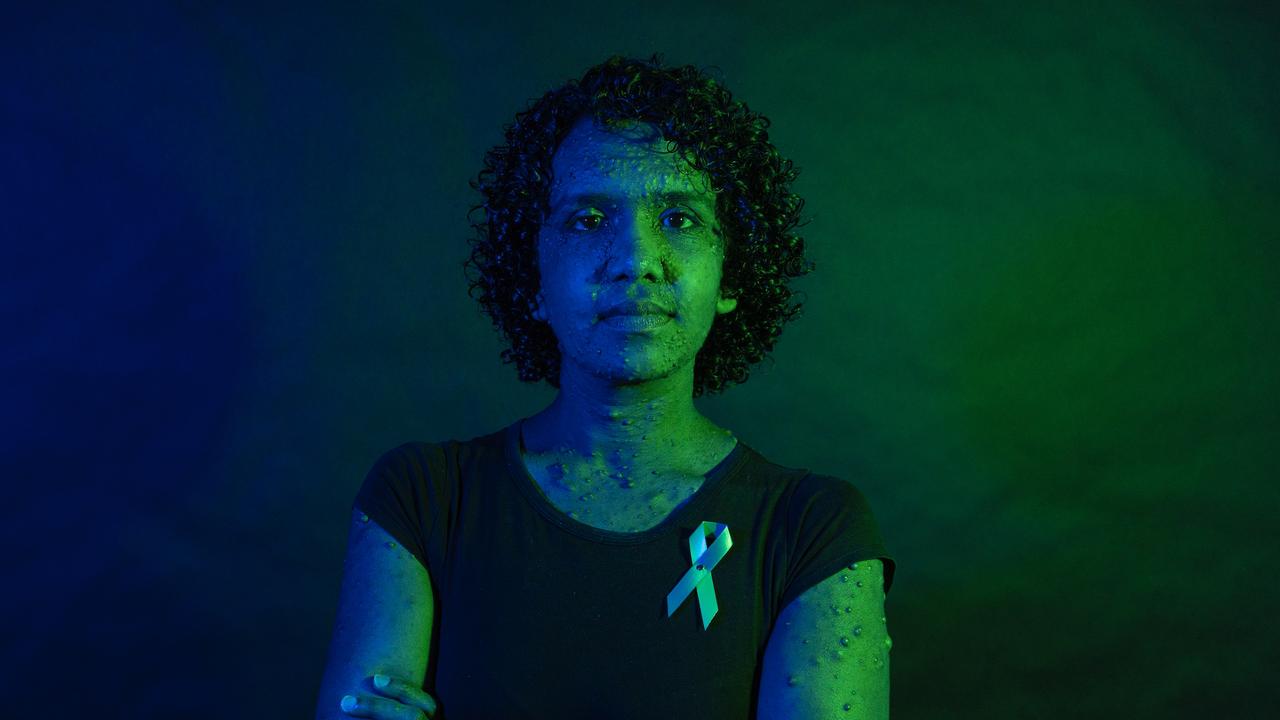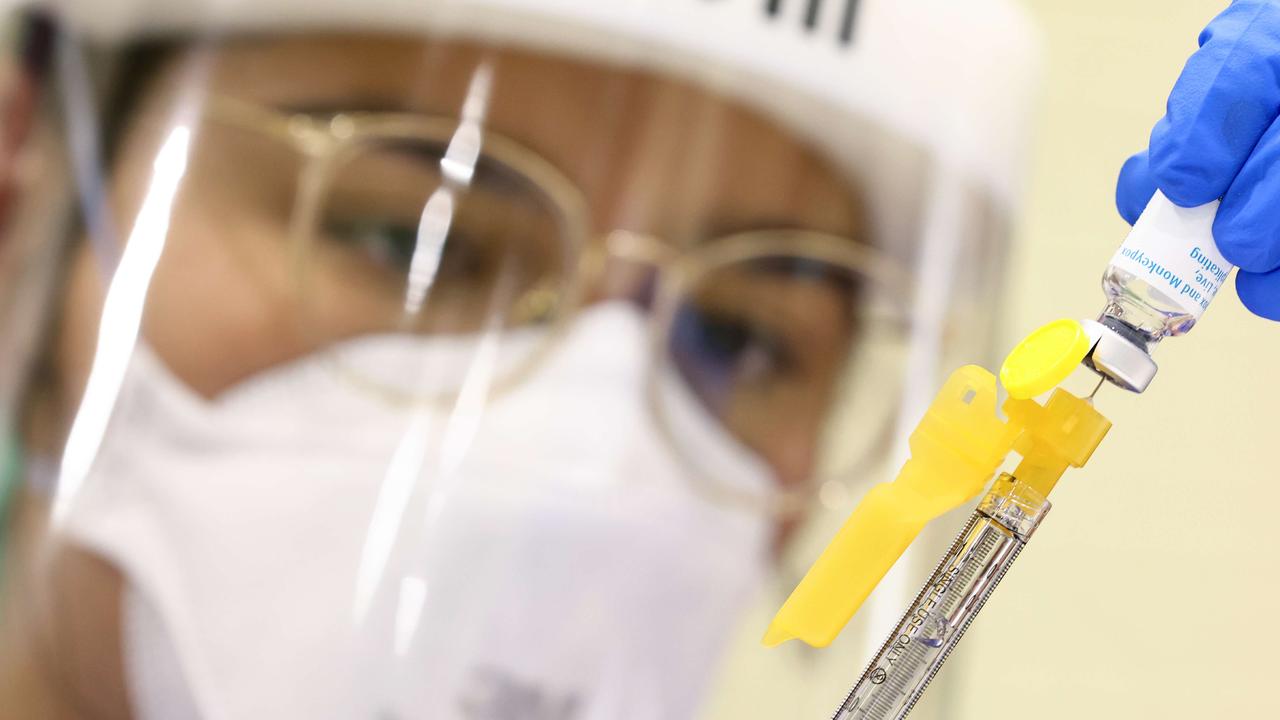Aussies suffering from tumour condition fear it being mistaken for monkeypox
Aussies living with a genetic condition with similar symptoms to monkeypox are fearing misguided attacks from the public.
Australians with a rare genetic condition which produces similar symptoms to monkeypox say they fear being mistaken for having the contagious disease.
Neurofibromatosis is a set of complex genetic conditions which cause tumours to form on nerve cells, under the skin and deep in the body.
In its most common form, the disease impacts more than one in 2,500 Australians.
Associate Professor Mimi Berman, Head of the Genetics Department at Royal North Shore Hospital, said people living with NF are facing confusion since the rise in monkeypox.
“Monkeypox causes a rash that can look a lot like chickenpox, with early fluid-filled blisters, then acne-like pustules and scabbing,” she said.
“NF is quite different in that lumps are fleshy, more like moles, and don’t scab. NF is not infectious, but can be disfiguring, making daily living quite difficult and embarrassing for people.

Associate Professor Berman said being accused of having monkeypox could lead to unsafe situations for Australians living with NF.
“Being incorrectly accused of being infectious can be extremely upsetting and embarrassing for people living with NF, as it can be for anyone living with a chronic skin disorder,” she said.
Janu Dhayanathan, who lives with NF1, says she now fears someone would assume she had the condition and accost her in public.
The Sydneysider went so far as to seek a letter from her doctor before a recent overseas trip explaining she doesn’t have monkeypox.
“Friends and family tried to reassure me that the likelihood of it happening [being accused of having monkeypox] was minimal,” she said.

“But the anxiety persisted. I dreaded going out in public … I also sought out counselling to keep those anxieties at bay.
“Thankfully, I didn’t have to use my doctor’s letter. I did get a lot of stares, which made me feel a little self-conscious, but I am used to people staring, so I let it slide … Unfortunately, the incidents in the U.S. and Spain confirmed my fears.
“I would be lying if I said I wasn’t dreading the summer months when it would be harder to cover up.”
Julia Szulerowski and her daughter Jess, who are based on the NSW south coast, both have NF1 and are deeply concerned by what the outbreak means for people with visible tumours.
“People were rude [pre MPXV], unkind, thoughtless, towards the NF community anyway, but now we have to contend with being considered contagious,” she said.
“Ignorant people now have even more reason to throw us off buses, aeroplanes, out of swimming pools, or tell us we can’t try on clothes. The list goes on and on.
“This happened before monkeypox. I feel that this virus is just going to make it worse.”
Monkeypox is a zoonotic virus, meaning it is a disease transmitted to humans from animals.
It is generally found in central and west Africa near tropical rainforests, but has been spreading to more urban areas throughout the course of this year.
The trademark symptoms of monkeypox are a blistering rash or pimple-like lesions on the face, mouth, hands, feet or genitalia.
Other symptoms include fever, body aches, headaches, swollen lymph nodes and chills.
There have been more than 31,000 cases across nearly 90 countries since May, while the virus has been present in Australia for almost three months.
Originally published as Aussies suffering from tumour condition fear it being mistaken for monkeypox


